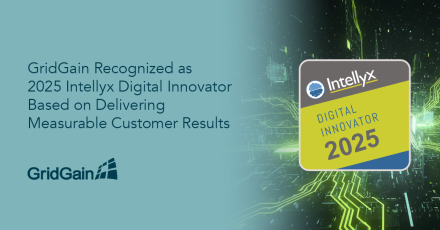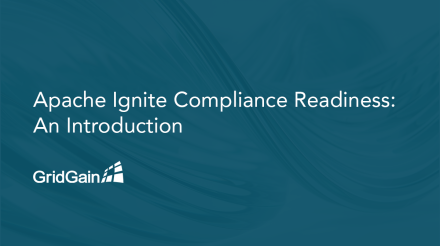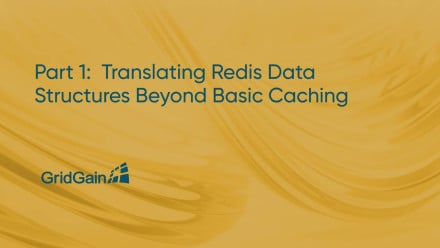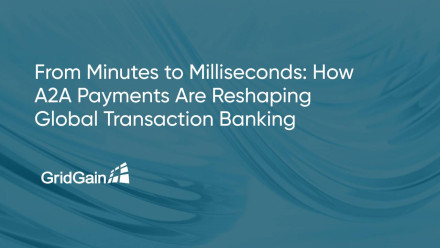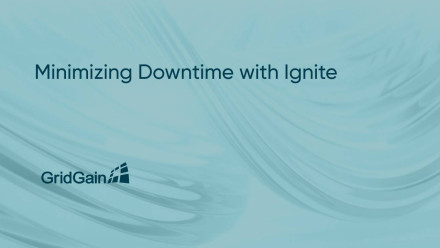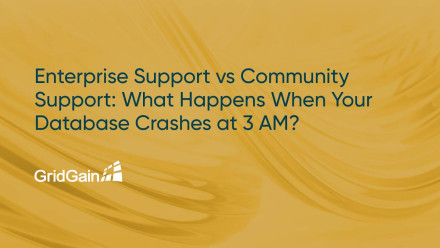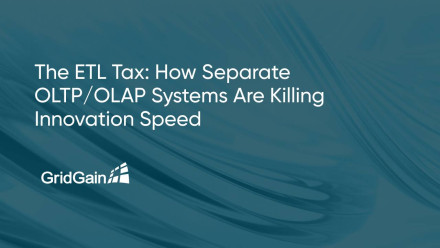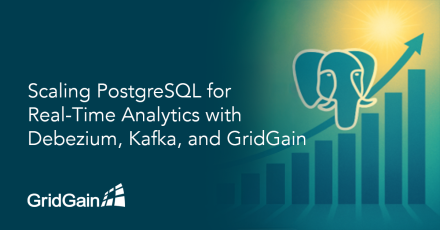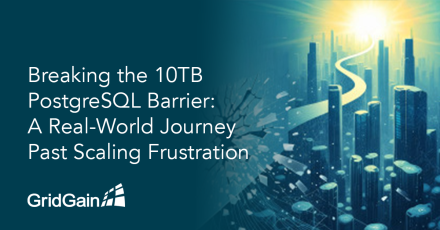GridGain Blog
In an enterprise IT landscape plagued by unfulfilled promises, we are deeply gratified that GridGain has been recognized with a 2025 Intellyx Digital Innovator Award , an honor underscoring our success at delivering quantifiable business benefits for our customers.The Intellyx Digital Innovator Awards, now in its fifth year, isn’t handed out easily. As Jason Bloomberg, President of analyst firm…
If you're new to running Apache Ignite in production, or planning to deploy it for regulated workloads, compliance readiness isn't optional. Our customers at GridGain (the original creators of Ignite and regular committers) regularly ask about security controls, audit capabilities, and data governance features they need to satisfy internal compliance requirements. This guide covers the…
In Part 1 of this two-part blog series, we saw how to go beyond basic caching with GridGain 8. Part 1 discussed why people start with Redis and the challenge Redis brings, the Redis and GridGain designs, and then mapping Redis to GridGain 8. Since GridGain version 8 and 9 differ significantly in their architecture and classes, it’s best to have these in two separate blogs.GridGain 9: Modern Table…
Why People Start with Redis and the Challenge It BringsWhen developers chase lightning-fast data access, the journey almost always starts in RAM. Redis has become the go-to choice here - thanks to its simplicity: a few core data types and a lightweight command set. But as applications grow beyond basic caching into large-scale, distributed systems, a challenge emerges:How do you preserve Redis-…
Milliseconds, Not Minutes: The New Reality of PaymentsBlink. In less time than that, an account‑to‑account (A2A) payment can be initiated on a phone in one country, routed across multiple rails, and land in an account on another continent. What used to take minutes or hours is now measured in single‑digit milliseconds. That shift is not just about speed. It is forcing banks, payment providers,…
Do you remember where you were on October 20th, 2025? It's not exactly up there with "Where were you for the moon landing?", but if you deployed your production Ignite cluster in AWS US-East-1, there's a good chance that the scars are still fresh.Apache Ignite has many native facilities to minimise your downtime. In common with other distributed systems, some level of redundancy is baked right in…
It's 3 AM on a Sunday. Your payment processing database just crashed. Customers can't complete checkouts. Every minute of downtime costs you thousands in lost revenue. You grab your laptop and face a critical question: Who's going to answer your call for help?This scenario separates organizations that survive critical incidents from those that don't. The enterprise SLA vs community support…
Your analytics dashboard updates every morning at 6 AM. Your data engineers maintain it religiously. Your executives trust the numbers. And you're still making decisions with yesterday's data, or worse, last week's.While you're waiting hours for your ETL pipeline to refresh, depending on your industry, any number of bad outcomes occurs. Your fraud detection model isn’t able to detect a new fraud…
When PostgreSQL Starts to StrugglePostgreSQL is fantastic for transactional workloads. It's reliable, well-understood, and has saved my bacon more times than I can count. But somewhere around the 10TB mark, things get weird. You start seeing replica lag that won't quit, vacuuming takes longer and longer, and those cross-table analytical queries that used to run in seconds now take minutes.The…
When I first took on a PostgreSQL deployment, the idea of hitting a 10TB wall sounded like one of those distant, hypothetical nightmares. But as our data started piling up (backups, transaction logs, random analytics tables) we gradually crept closer to what felt like the “point of no return.” It wasn’t a smooth ride, and plenty of head-scratching moments stood out. If you’re reading this, you…

